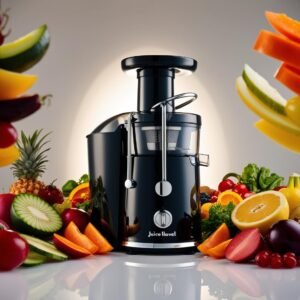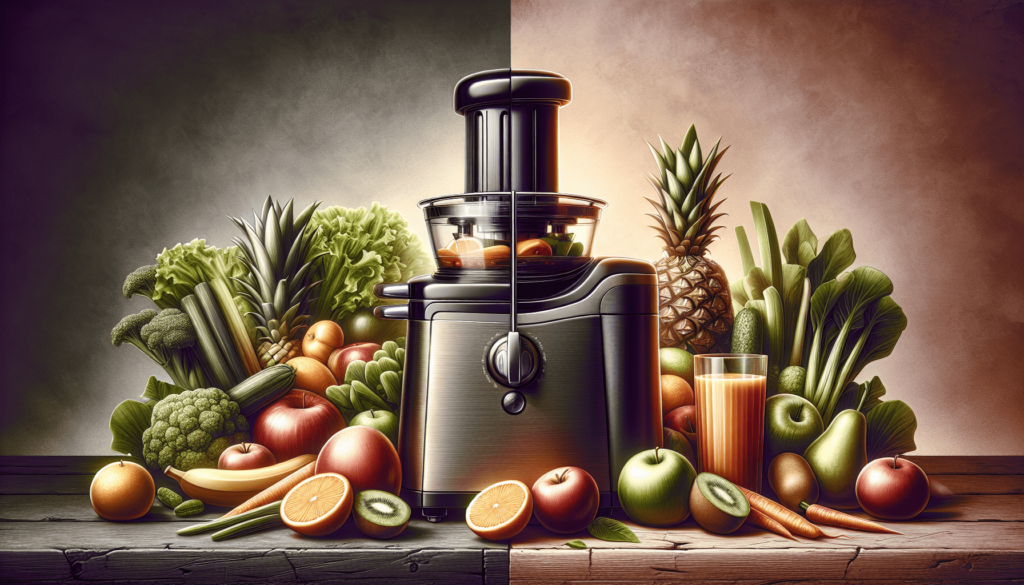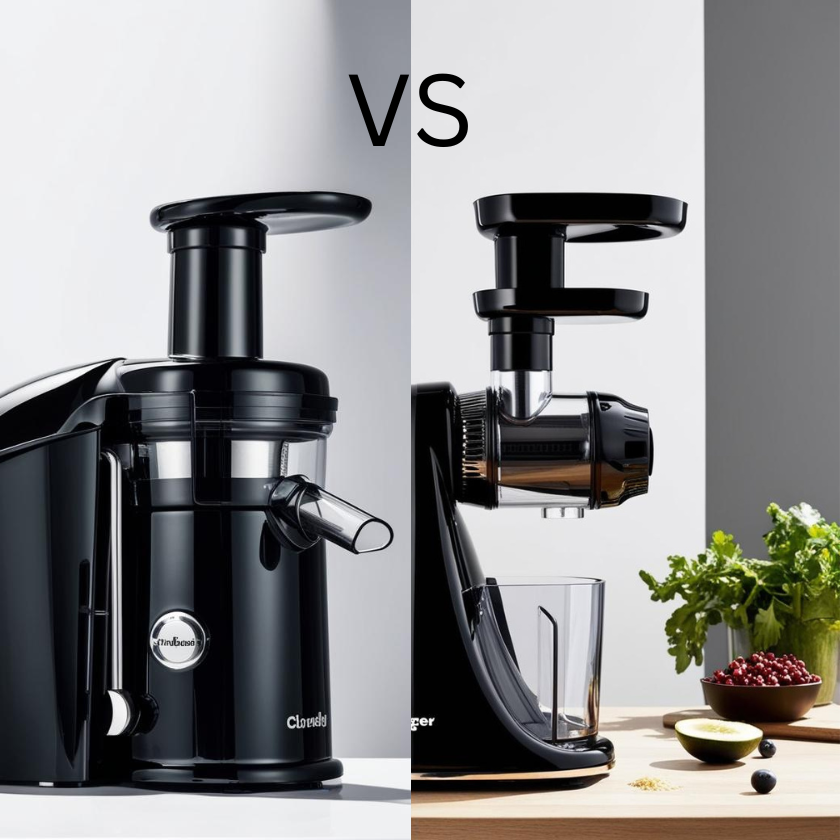The world of juicing can be quite overwhelming, especially with all the different types of juicers available. Comparing Centrifugal vs Masticating Juicers can help you make an informed decision that align with your lifestyle and nutritional goals.
Introduction to Juicing
Juicing is more than just a health trend; it’s a lifestyle choice that can significantly boost your intake of nutrients. Both centrifugal and masticating juicers have their unique features, benefits, and drawbacks. This article will break down the differences to help you determine which juicer is right for you.
What is a Centrifugal Juicer?
Centrifugal juicers are often the most popular choice for households. They operate using a fast-spinning blade that grates fruits and vegetables, which are then pushed against a mesh filter to extract juice.
- Speed: One of the primary advantages of a centrifugal juicer is its speed. You can usually juice a variety of fruits and veggies in a matter of seconds.
- Price: They tend to be more affordable compared to their masticating counterparts, making them accessible for many people.
- Ease of Use: Centrifugal juicers are often easier to assemble and clean, making them user-friendly, especially for beginners.

Pros of Centrifugal Juicers
- Quick Processing Time: You can whip up your favorite juice almost instantly, perfect for a busy morning.
- Less Preparation Required: Most centrifugal juicers can handle larger pieces of produce, so you won’t need to chop everything into tiny bits.
- Affordable Options: There are many models at various price points, catering to different budgets.
Cons of Centrifugal Juicers
- Oxidation of Juice: The high-speed operation introduces air into the juice, which can cause faster oxidation, leading to nutrient loss.
- Less Juice Yield: You may find that you get less juice compared to using a masticating juicer, especially with leafy greens.
- Noise Level: They can be quite noisy, which might be a concern if you’re trying to enjoy a peaceful morning routine.
What is a Masticating Juicer?
A masticating juicer, sometimes referred to as a cold press juicer, works differently. It uses a slow, grinding motion to extract juice from fruits and vegetables.
- Juicing Process: This method squeezes produce rather than shredding it, aiming to preserve as many nutrients as possible.
- Versatility: Masticating juicers can handle a wide range of ingredients, including greens, nuts, and even wheatgrass.
- Quality of Juice: Because they operate at a lower speed, masticating juicers produce juice that can be stored for longer without significant nutrient loss.

Pros of Masticating Juicers
- Higher Nutritional Value: With less air exposure during juicing, your juice retains more nutrients over time.
- Better Juice Yield: Masticating juicers typically extract more juice, especially from leafy greens.
- Quieter Operation: They usually operate at a lower volume, making for a more peaceful juicing experience.
Cons of Masticating Juicers
- Slower Process: If you’re in a rush, the slower juicing time might not suit your needs.
- Higher Cost: Generally, they are more expensive than centrifugal juicers, which can be a deciding factor for some.
- More Complex Cleaning: The juicing process can leave more parts to clean, and some models may require more time to assemble or disassemble.
Nutrient Retention
One area where the two juicers vary significantly is in nutrient retention. Masticating juicers are known for better preserving vitamins and enzymes due to their slow juicing method. Given that a lot of the health benefits you get from juicing come from those nutrients, many people find masticating juicers to be worth the additional cost.
Oxidation Process
With the high-speed blades of a centrifugal juicer, air is introduced into the juice through the rapid slicing of fruit and vegetables. This exposure leads to oxidation, which can substantially reduce the nutrient quality over time. In contrast, the slow method used in masticating juicers minimizes this exposure, thus preserving the juice’s color, flavor, and nutritional profile for a more extended period.
| Juicer Type | Nutrient Retention | Oxidation Speed |
|---|---|---|
| Centrifugal | Lower | Faster |
| Masticating | Higher | Slower |
Juice Variety
When it comes to versatility in juicing different types of produce, each juicer has its strengths.

Types of Produce
- Leafy Greens: Masticating juicers excel here. They can juice kale, spinach, and other leafy greens with ease.
- Hard Fruits and Vegetables: Centrifugal juicers handle apples and carrots very well, making them an excellent option for thick, hard fruits.
- Citrus: Both types generally do well with citrus fruits like oranges and grapefruits, but manual juicers often perform slightly better for this category.
Blends and Smoothies
If you have aspirations of blending and making smoothies, the masticating juicer often shines through. You can toss in a variety of ingredients, including leafy greens and nuts, to create nutrient-dense blends that are more difficult to achieve with a centrifugal juicer.
Cost Considerations
Your budget plays a crucial role in determining which type of juicer may be best for you.

Upfront Costs
Centrifugal juicers generally have a lower upfront cost, which can be appealing if you’re new to juicing or if you have a limited budget. You can usually find a decent machine for under $100. Masticating juicers tend to start at a higher price point, often ranging from $200 to $500 or more, depending on the features and quality.
Long-Term Investment
While masticating juicers are more expensive, think of them as a long-term investment. The additional juice yield and higher nutrient retention can lead to better health benefits. If you plan on juicing regularly, the efficiency and versatility might justify the higher price tag.
Space and Storage
Consider your kitchen layout and how much space you have available for your new appliance.
Size and Weight
Centrifugal juicers are generally more compact and lightweight, making them easier to store. If you have limited countertop space, this can be a significant advantage. Masticating juicers tend to be bulkier and heavier. However, they often come with additional accessories, which can take up more room.
Ease of Accessibility
Think about how often you will use the juicer. If it’s going to be a daily habit, having it easily accessible on your countertop could make the task more enjoyable. On the other hand, if you’re tight on space, a compact centrifugal juicer might fit perfectly into your routine.

Cleaning and Maintenance
The ease of cleaning is a vital factor for anyone looking to incorporate juicing into their daily life.
Cleaning Process
- Centrifugal Juicers: They typically have fewer parts and are easier to clean. Most components can be rinsed, and some are even dishwasher-safe.
- Masticating Juicers: While they may require more effort to clean due to additional parts, many newer models have streamlined designs to make cleanup easier.
Long-Term Maintenance
Both types of juicers require occasional maintenance. Check for worn-out parts, and occasionally run a cleaning solution through the machine to keep it functioning smoothly.
| Juicer Type | Cleaning Difficulty |
|---|---|
| Centrifugal | Lower |
| Masticating | Higher |
Conclusion
In deciding between a centrifugal and masticating juicer, think about what matters most to you. If speed, budget, and ease of use are your priorities, a centrifugal juicer might be the way to go. However, if you are focused on nutrition, juice quality, and versatility, then a masticating juicer could be worth the investment.
Ultimately, the best juicer is the one that fits seamlessly into your lifestyle, encourages you to enjoy delicious juices, and helps you reach your health goals. Regardless of your choice, both types will provide you with an incredible way to incorporate more fruits and vegetables into your diet. Happy juicing!




